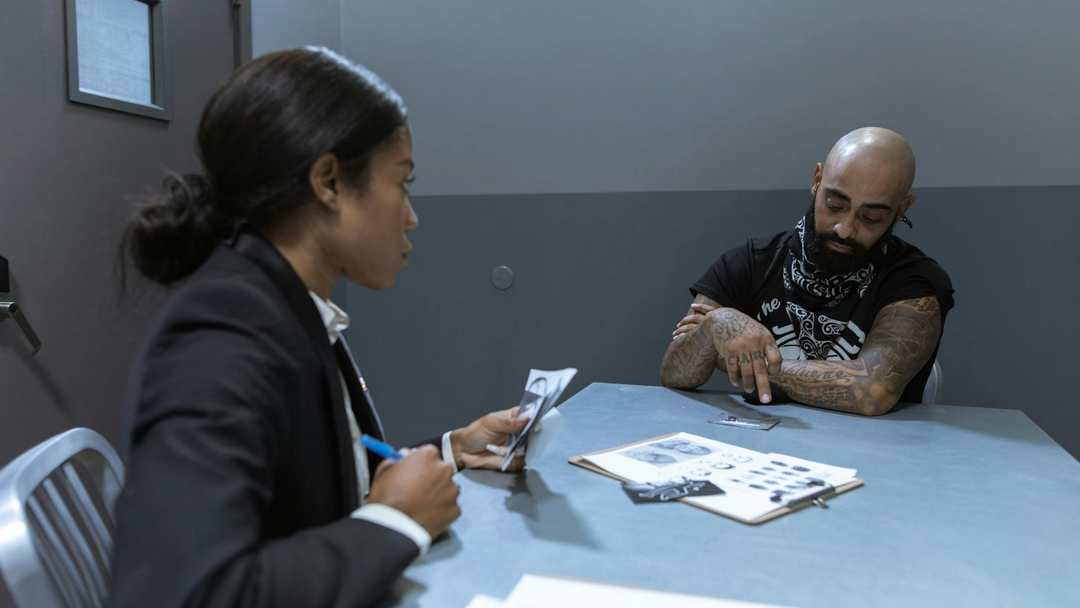No Results Found
The page you requested could not be found. Try refining your search, or use the navigation above to locate the post.

Carrying a concealed weapon (CCW) in Michigan without proper authorization can lead to serious criminal charges.
Michigan law has strict regulations regarding firearms, and violating these laws can result in significant penalties.
This article explains what carrying a concealed weapon means, the potential punishments, legal defenses, and how an experienced attorney can help you if you’re facing charges.
As always – Don’t talk and you must invoke your 5th amendment right and ask for a lawyer. No matter what the police say or what they promise you!!
In Michigan, it is illegal to carry a concealed weapon on your person or in a vehicle without a valid permit.
A concealed weapon typically means a handgun, but it can also include other dangerous weapons like knives or brass knuckles if they are hidden from view.
The law that governs carrying a concealed weapon is MCL 750.227. This law makes it a crime to carry a concealed pistol or other dangerous weapon without a Concealed Pistol License (CPL).
If you do not have a CPL, you are at risk of being charged with carrying a concealed weapon.
Carrying a concealed weapon without a permit is a felony in Michigan. The potential penalties are severe and can affect your freedom and future. If convicted, you may face:
Additionally, a conviction for carrying a concealed weapon could lead to a permanent criminal record, which could impact your ability to find employment, own a firearm in the future, or even vote. It is important to take these charges seriously.
If you have been accused or charged with a crime.
Say nothing to anyone. Talk to us first.
Our firm is experienced in both State and Federal courts defending clients.
CALL NOW
If you’re facing charges for carrying a concealed weapon in Michigan, it’s important to work with an experienced legal team that understands Michigan’s gun laws.
Komorn Law has over 30 years of experience handling criminal defense cases in both state and federal courts. They specialize in defending clients charged with weapons-related crimes, including CCW.
Komorn Law can assist by:
If you’ve been charged with carrying a concealed weapon, don’t face the legal system alone. Contact Komorn Law (248) 357-2550 for a consultation or to hire the team to fight for your rights and protect your future.
Note: This article provides a general overview and does not substitute for legal advice. Anyone charged with a CSC offense should consult an attorney for specific legal guidance.
The page you requested could not be found. Try refining your search, or use the navigation above to locate the post.

Teachers Union and School District at Odds Over Data Access
The Michigan Supreme Court recently declined to hear a case regarding whether public school teachers’ class materials are subject to the state’s Freedom of Information Act (FOIA).
This case stems from a parent in Rochester, Carol Beth Litkouhi, who filed FOIA requests to access materials from a high school course on Ethnic and Gender Studies. The school district argued that the documents, since they were held by individual teachers and not the public body itself, were exempt from FOIA.
The Michigan Court of Appeals sided with the district, ruling that only records held directly by public bodies, not their employees, are subject to FOIA.
This decision raises concerns about transparency. Opponents of the ruling, including the Mackinac Center for Public Policy, argue that it creates a loophole that allows local government employees to withhold information, even if it’s produced during their official duties.
They warn that this could severely limit the public’s ability to hold local governments accountable.
If you have been accused or charged with a crime.
Say nothing to anyone. Talk to us first.
Our firm is experienced in both State and Federal courts defending clients.
CALL NOW
The justices ruled in a one-sentence order Wednesday that they won’t disturb an appeals court decision that says teachers are not covered by the Freedom of Information Act.
This case has sparked calls for legislative action to amend Michigan’s FOIA law to explicitly include records held by local government employees, ensuring public access to important information. You can read more about the legal documents and the court’s decision here.
Note: This article provides a general overview and does not substitute for legal advice. Anyone charged with a CSC offense should consult an attorney for specific legal guidance.
The page you requested could not be found. Try refining your search, or use the navigation above to locate the post.

In Michigan, the laws surrounding firearms are strict, especially when it comes to felony firearm possession.
If you’re charged with a felony and found to be in possession of a firearm during the crime, the penalties can be severe.
This article explains what felony firearm possession is, what punishments you could face and possible legal defenses.
#1 Step to take – Invoke your 5th amendment right and ask for a lawyer. No matter what the police say or what they promise you!!
Felony firearm possession refers to the illegal possession of a gun while committing or attempting to commit a felony.
Michigan law makes it a separate crime to have a firearm while committing another felony, like drug possession, robbery, or assault.
Even if you don’t use the gun, simply having it in your possession during the felony is enough to be charged.
The law that governs felony firearm possession is MCL 750.227b
Michigan’s felony firearm law imposes mandatory prison sentences that are separate from any other punishment you might receive for the underlying felony.
It’s important to note that these sentences are not negotiable.
The judge has no discretion in reducing or suspending these sentences—they are mandatory.
Additionally, these sentences are served consecutively, meaning the time for the felony firearm charge is added on top of the sentence for the underlying felony.
This is a charge the prosecutors usually hold over you if you don’t submit, obey and confess.
If you have been accused or charged with a crime.
Say nothing to anyone. Talk to us first.
Our firm is experienced in both State and Federal courts defending clients.
CALL NOW
Being charged with felony firearm possession can dramatically impact your life. The mandatory prison sentences are harsh, but Komorn Law has over 30 years of experience defending clients in complex criminal cases. They have a deep understanding of Michigan’s firearm laws and will work tirelessly to defend your rights.
Komorn Law can assist by:
With their vast experience in both state and federal courts, Komorn Law is dedicated to providing the best possible defense for clients facing felony firearm charges.
If you’ve been charged with felony firearm possession, contact Komorn Law (248) 357-2550 for a consultation or to hire the team to fight for your rights and protect your future.
Note: This article provides a general overview and does not substitute for legal advice. Anyone charged with a CSC offense should consult an attorney for specific legal guidance.
The page you requested could not be found. Try refining your search, or use the navigation above to locate the post.

PEOPLE OF THE STATE OF MICHIGAN
V.
HASSAN WALID AIYASH
This case revolves around a gas station attendant who was charged with involuntary manslaughter after a patron was fatally shot inside the store. The attendant remotely locked the store’s door after the patron attempted to leave without paying. The patron became agitated and shot three people, killing one.
Short Background
Samuel McCray went into a Detroit gas station around three o’clock in the morning on May 6, 2023, and tried to buy about four dollars’ worth of snacks and beverages.
Defendant was working as the gas-station attendant at the time. After McCray’s card was declined, McCray threatened to kill defendant and tried to leave with the unpaid-for merchandise.
Defendant stopped McCray by remotely locking the gas station’s only door, trapping McCray and three other patrons inside the gas-station store.
Standing behind bulletproof glass, defendant mocked McCray while the other three patrons pleaded with defendant to unlock the door.
Defendant initially refused, allowing the situation in the store to escalate for several minutes before finally unlocking the door.
But by that time, it was too late—McCray believed that one of the other patrons, Gregory Kelly, had insulted him, so McCray took out a gun and shot Kelly nine times, killing him.
McCray shot another patron, David Langston, three times, and the third patron, Anthony Bowden, three or four times.
On these facts, the prosecution seeks to hold defendant criminally liable for Kelly’s death under a theory of involuntary manslaughter.
The district court bound defendant over on the charge, and the circuit court affirmed.
Full story link and court opinion at end of this article.
The primary legal question is whether the attendant’s actions were the proximate cause of the death. Proximate cause requires a reasonably foreseeable link between the defendant’s actions and the harm.
The prosecution argued that the attendant’s actions escalated the situation and led to the shooting, making him liable. The lower court agreed.
If you have been accused or charged with a crime.
Say nothing to anyone. Talk to us first.
Our firm is experienced in both State and Federal courts defending clients.
CALL NOW
The Michigan Court of Appeals reversed, finding that the patron’s intentional actions were not reasonably foreseeable. The court noted that the attendant had no prior knowledge of the patron’s dangerousness.
The court contrasted this case with People v. Crumbley, where parents were held liable for their son’s school shooting because they knew of his mental health issues and gave him access to a gun.
This case highlights the strict standards for proximate cause in criminal cases, particularly involving third-party actions. It emphasizes that mere escalation of a situation does not automatically lead to criminal liability for unforeseeable violence. The decision also illustrates the court’s caution in expanding criminal liability for third-party actions.
Read full detailed story and court opinion here
Charged with Involuntary Manslaughter for Stopping Thief 20240925_C369689_31_369689.opn.CAO
Note: This article provides a general overview and does not substitute for legal advice. Anyone charged with a crime should consult an attorney for specific legal guidance.
The page you requested could not be found. Try refining your search, or use the navigation above to locate the post.

In Michigan, being caught with illegal drugs can lead to serious consequences. The state has strict laws on drug possession, and unlawful possession of a controlled substance is one of the most common charges.
Here, we’ll break down what the law says, the punishments, and possible defenses.
#1 Step to take – Invoke your 5th amendment right and ask for a lawyer. No matter what the police say or what they promise you!!
Under Michigan law, possession of a controlled substance means having drugs or narcotics that are illegal without a valid prescription. These substances can include illegal street drugs like heroin, meth, cocaine, or even prescription drugs like Oxycodone or Xanax if you don’t have a prescription.
Michigan categorizes controlled substances into different “schedules” based on how dangerous or addictive they are. The more dangerous the drug, the harsher the penalties. For example, Schedule I drugs, like heroin, are seen as highly addictive and have no accepted medical use, while Schedule II drugs, like certain pain medications, can be prescribed by a doctor but still carry serious penalties if abused.
The law governing unlawful possession of controlled substances can be found in MCL 333.7403. This section outlines which substances are illegal and what happens if you’re found in possession of them.
The punishment for possessing a controlled substance depends on several factors:
What drug you had, how much you had, and your prior criminal record.
For Schedule III or IV drugs (like prescription medications without a prescription), you may face up to 2 years in prison and/or fines up to $2,000.
You can find the penalties for different types of drugs under MCL 333.7401.
If you have been accused or charged with a crime.
Say nothing to anyone. Talk to us first.
Our firm is experienced in both State and Federal courts defending clients.
CALL NOW
If you’re charged with unlawful possession, there are legal defenses that could help your case. Some of the most common include:
If you’ve been charged with unlawful possession of a controlled substance, it’s crucial to have an experienced legal team by your side. Komorn Law has over 30 years of experience defending clients in both state and federal courts. They specialize in complex criminal defense cases and have a deep understanding of Michigan drug laws.
Komorn Law can help you:
Their expertise in drug cases, coupled with their knowledge of search and seizure laws, can make all the difference in getting charges dismissed or reduced.
If you’re facing charges for unlawful possession of a controlled substance in Michigan, call Komorn Law (248) 357-2550 for a free evaluation today.
Note: This article provides a general overview and does not substitute for legal advice. Anyone charged with a crime should consult an attorney for specific legal guidance.
The page you requested could not be found. Try refining your search, or use the navigation above to locate the post.